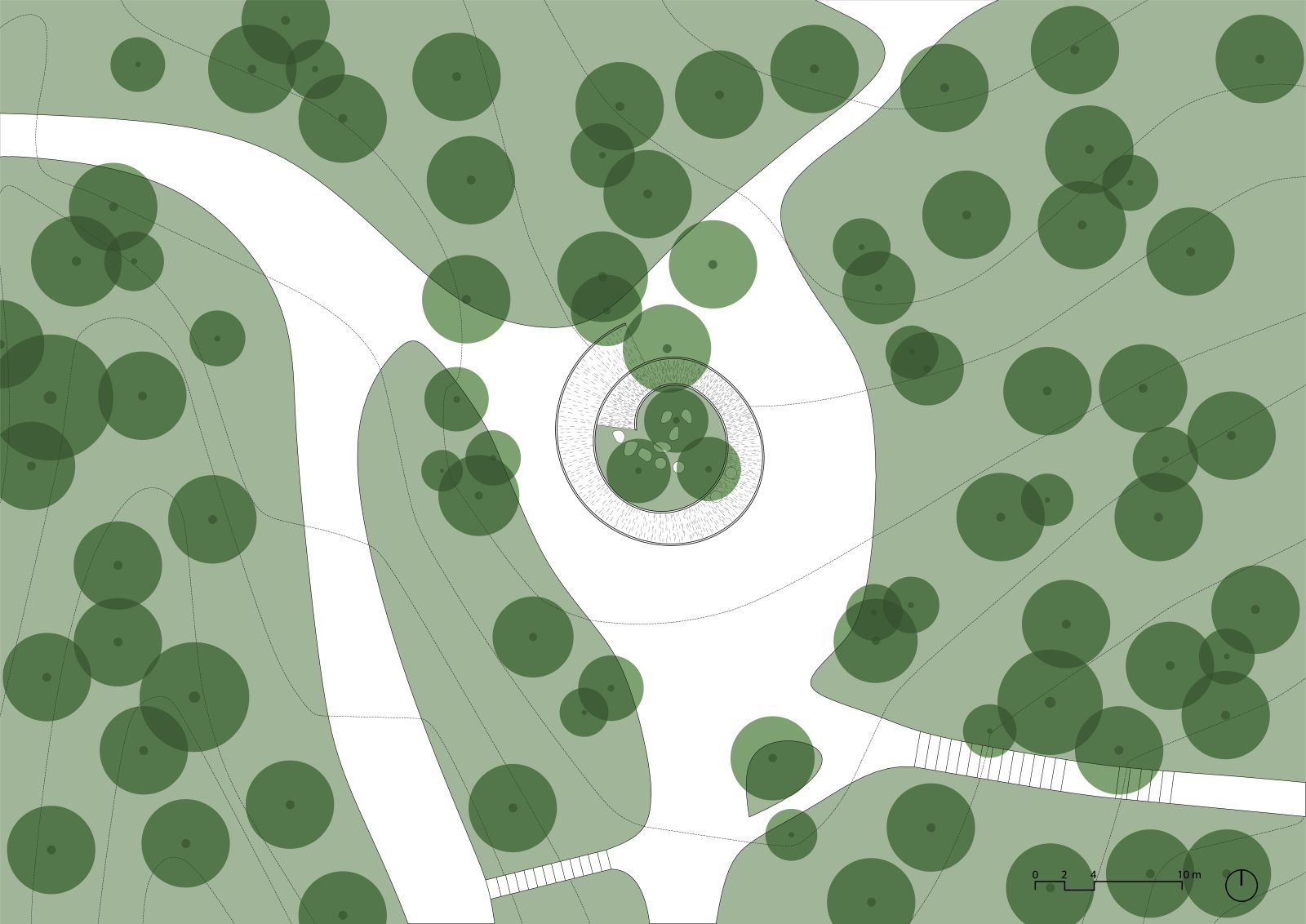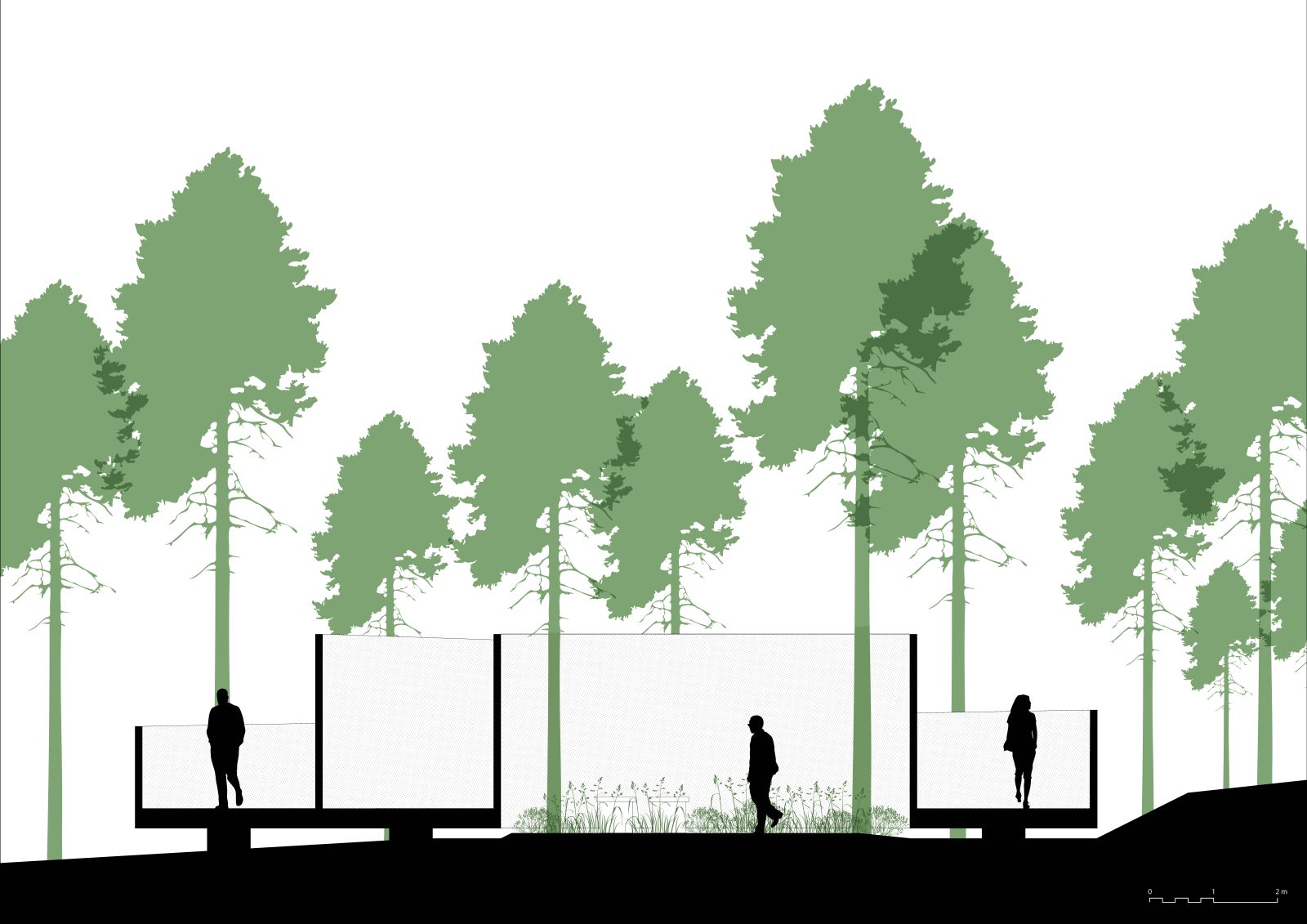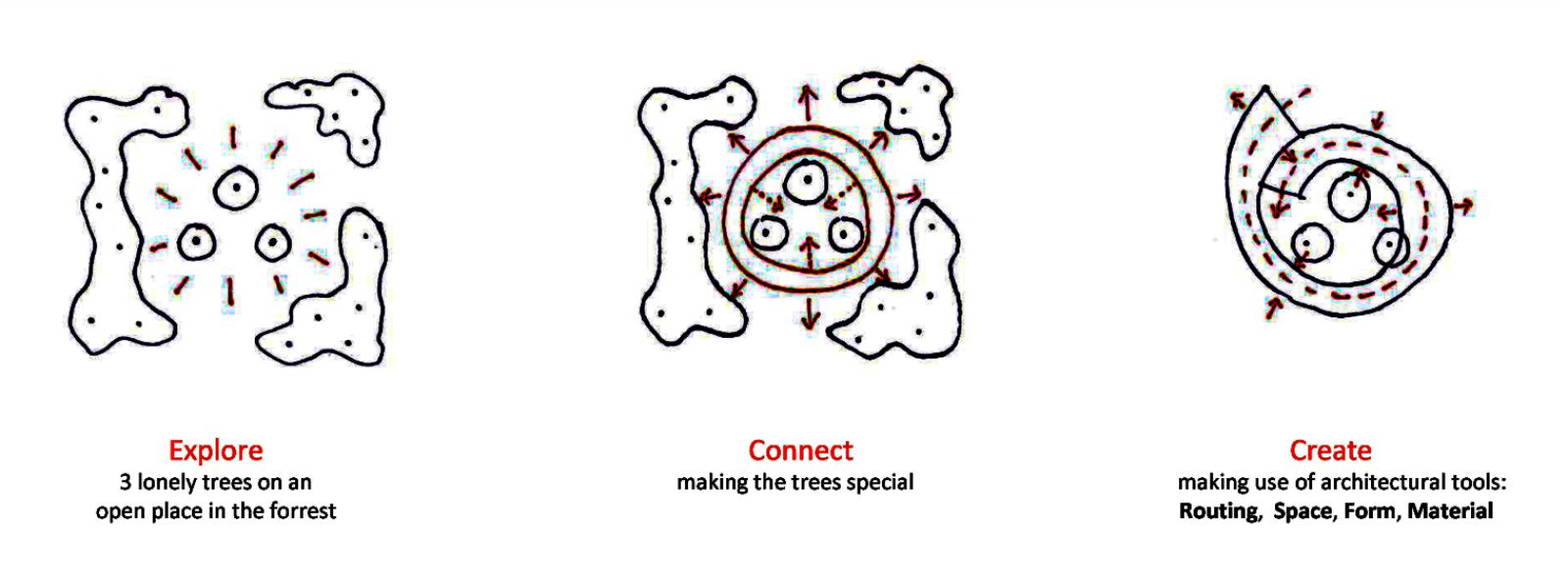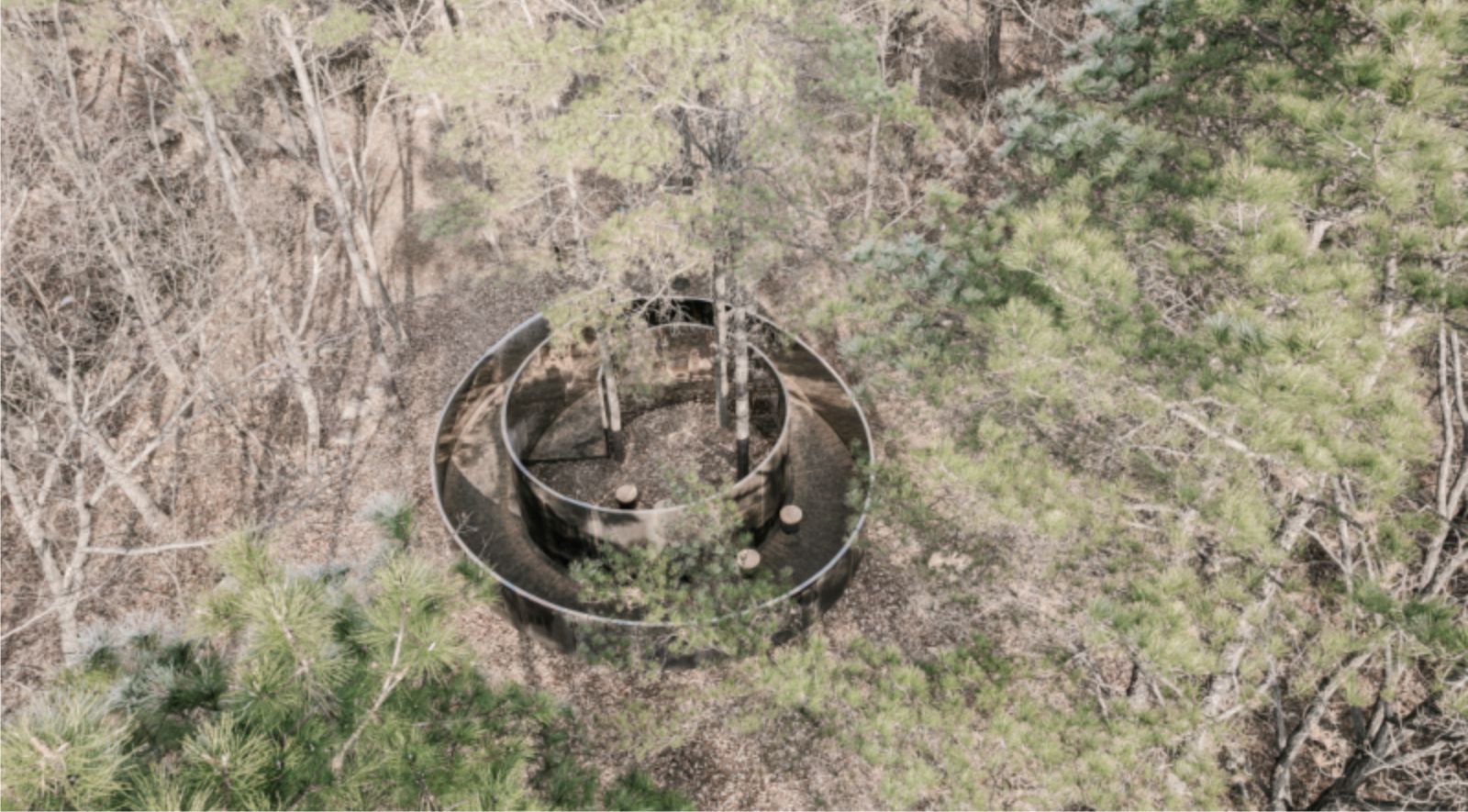NEXT architects is proud to unveil the delivery of Secret Forest – a pavilion in the forests of South Korea as part of the Public Art Project Anyang 7 (APAP7).
Enclosing a part of the surrounding green the pavilion creates a whole new perspective on the landscape and the function of a vantage point. It is not the first time NEXT architects incorporates thinking about the perspective and experience of the user in its work.
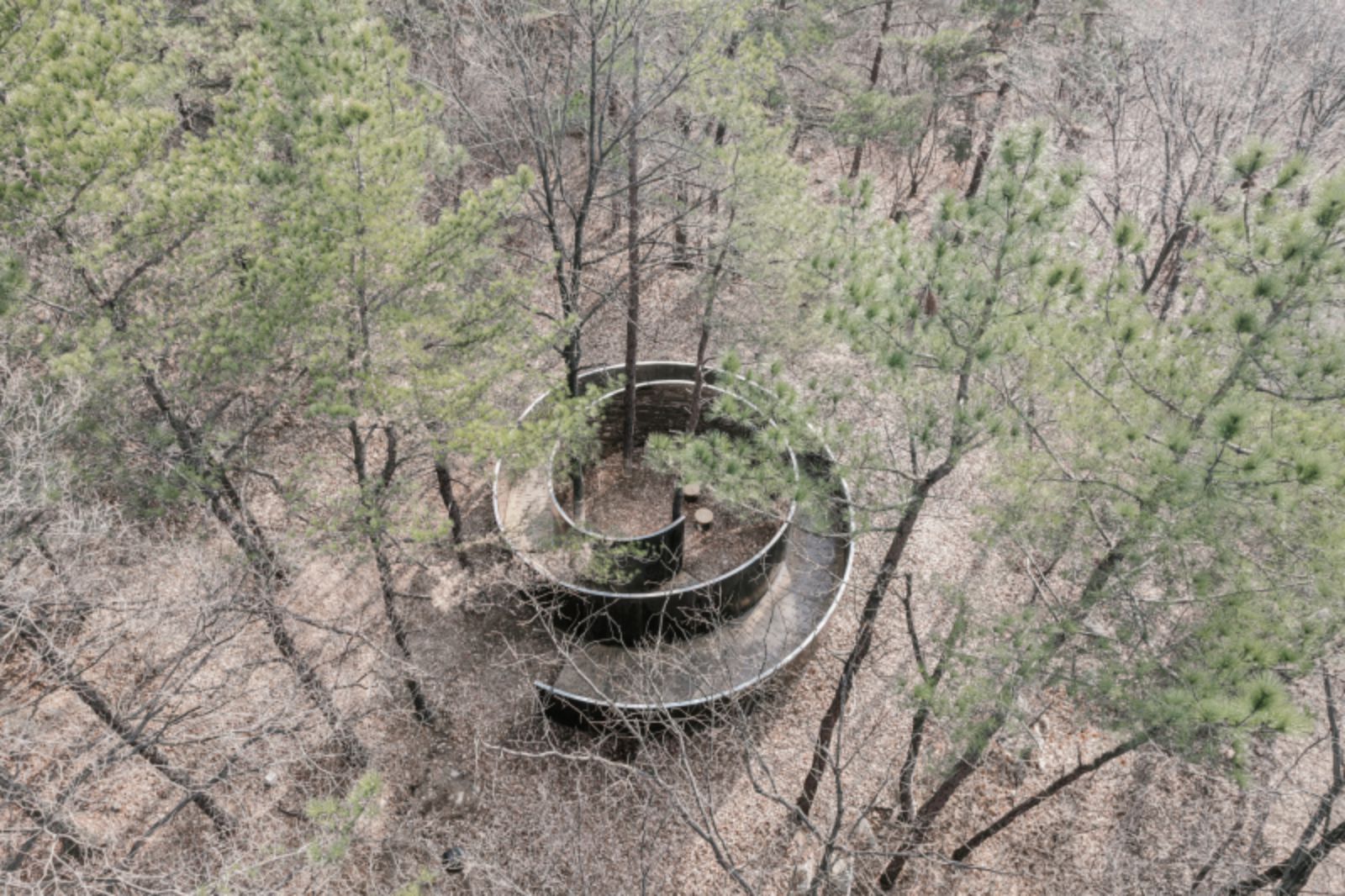
In other projects, such as the Lucky Knot, The Elastic Perspective and Maaspoints: Water Woods NEXT has created places where people can meet and experience the landscape from a new perspective. It’s part of the NEXT architects design philosophy.
Exploring different views
Located in the Samseon mountain, tree pavilion Secret Forest is designed as a part of the Anyang Public Art Project 7. In the pavilion, a part of the forest is enclosed.
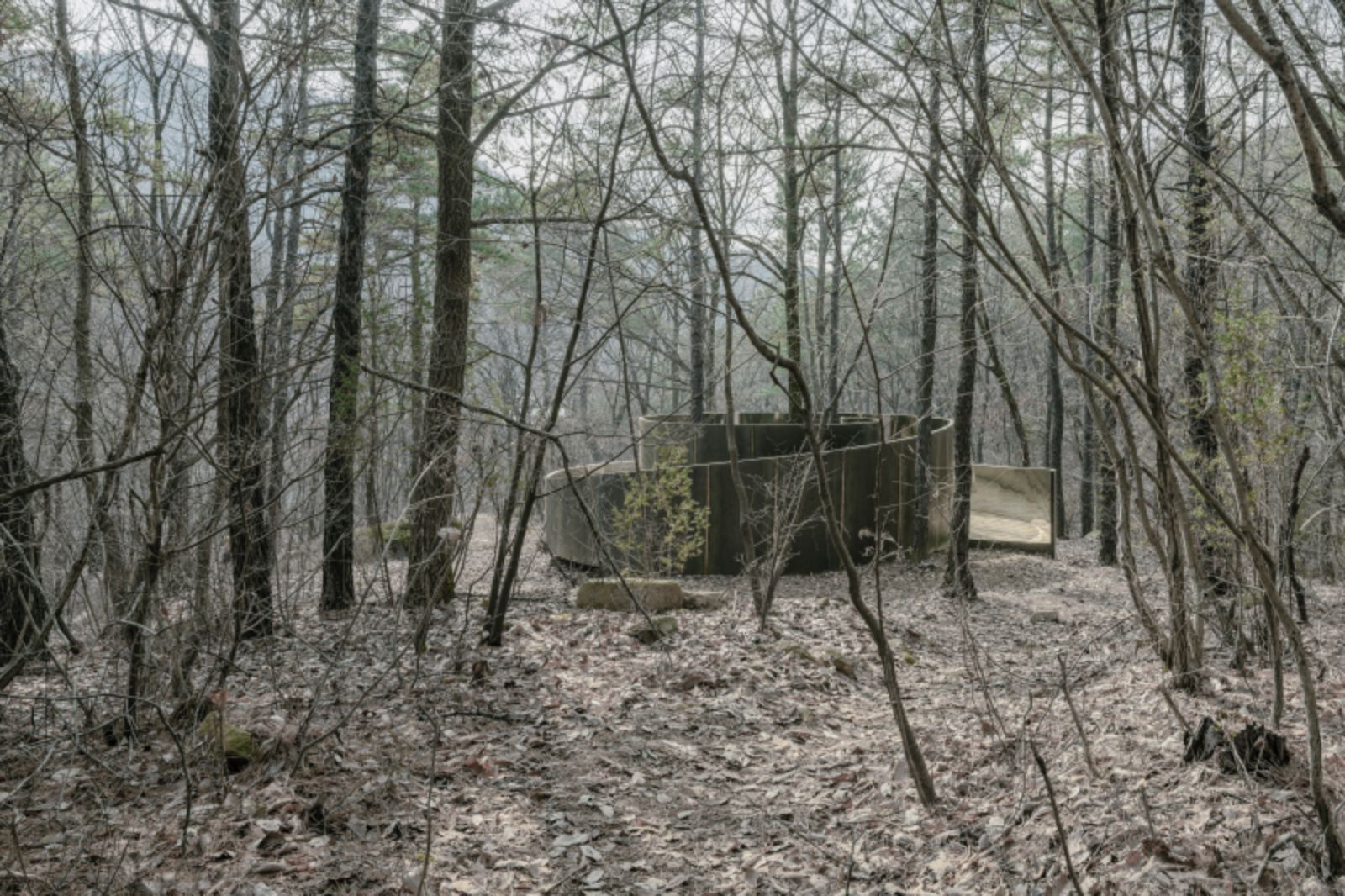
On the contrary, looking from inside to outside, a new perspective on the landscape has been given. Altogether the function of a vantage point has been totally reinvented.
Connecting the visitors to the trees
Thinking about the perspective and experience of the user is part of the NEXT architects design philosophy.
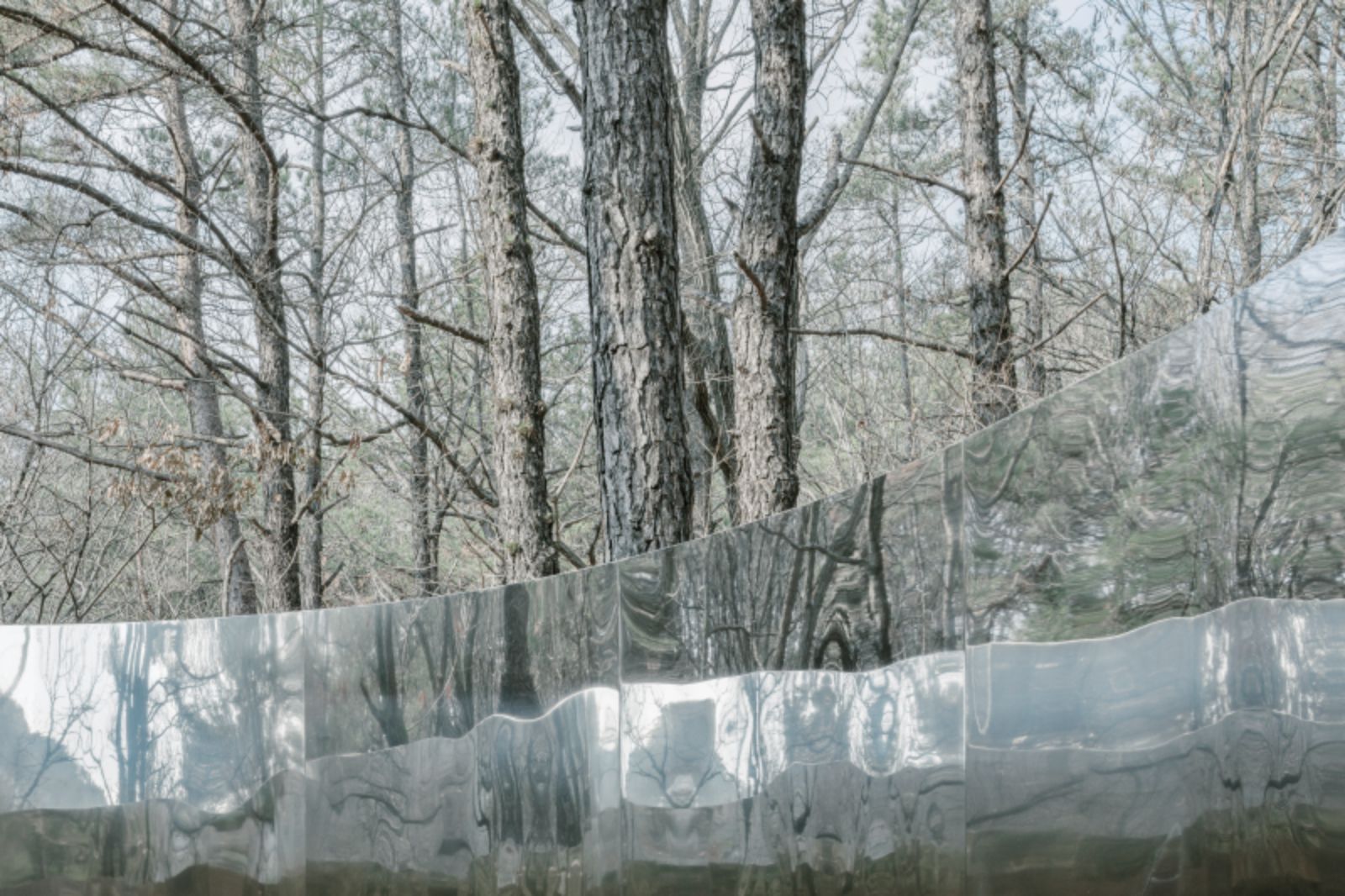
The closer the visitor gets to the central space, the more they are forced to experience the lonely trees that are separated from the forest; they find themselves as part of a new forest that emerges in the mirroring wall and become part of the secret forest. Moving outside again they overview the forest and its splendor.
Creating contrast between inside and outside
For the pavilion a contrast between enclosed space and overview has been created. From the entrance, the visitor’s gaze is directed inside or outside the scenery.
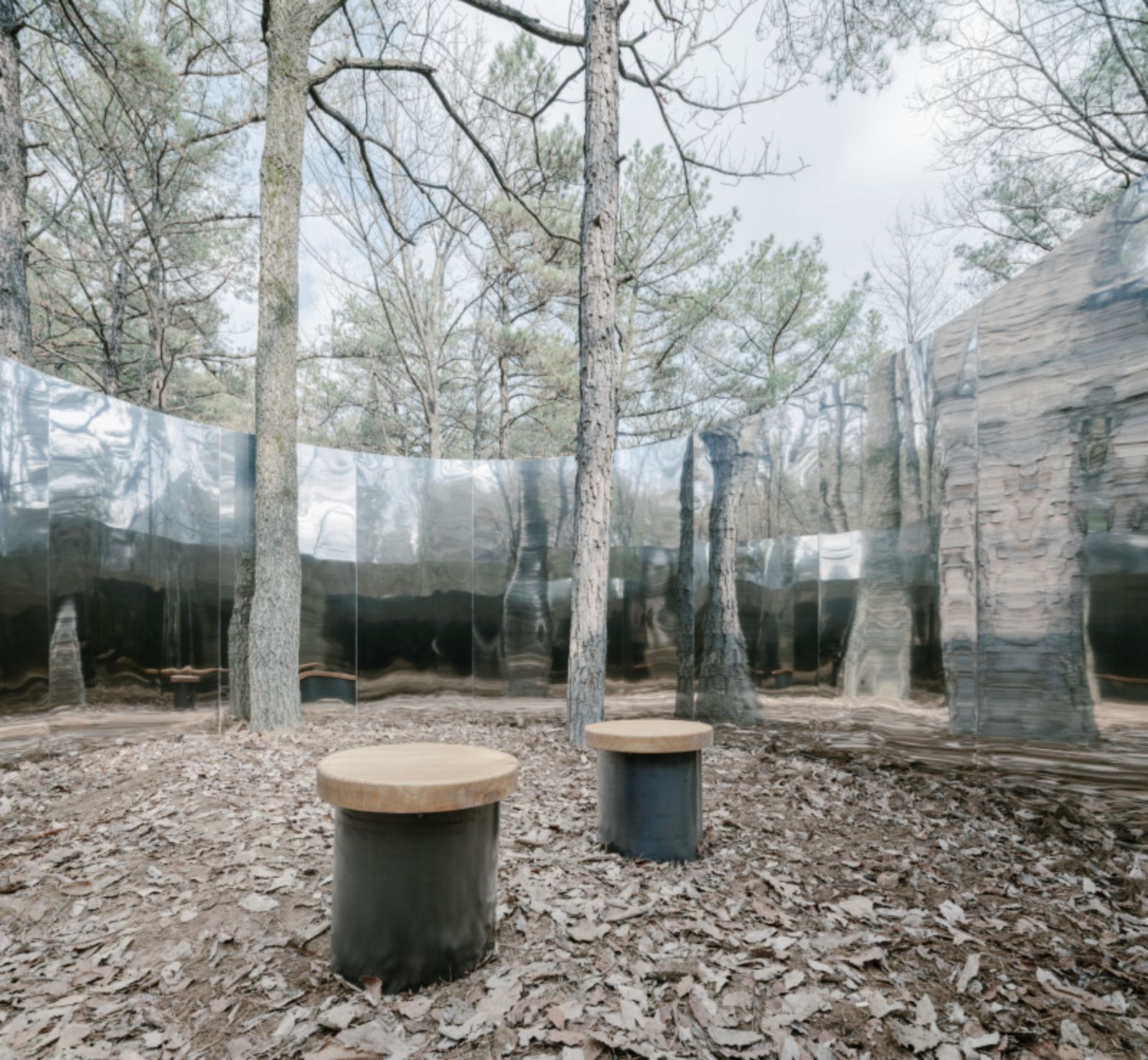
Next, the pavilion challenges the pedestrians to experience different views and a common experience as trees in a forest while they move up or down the elliptical passageway.
As the visitors move towards the center, the walls rise and the visitor’s perspective is shifted to a vertical view – towards the sky or the enclosed trees that are being separated from the forest.
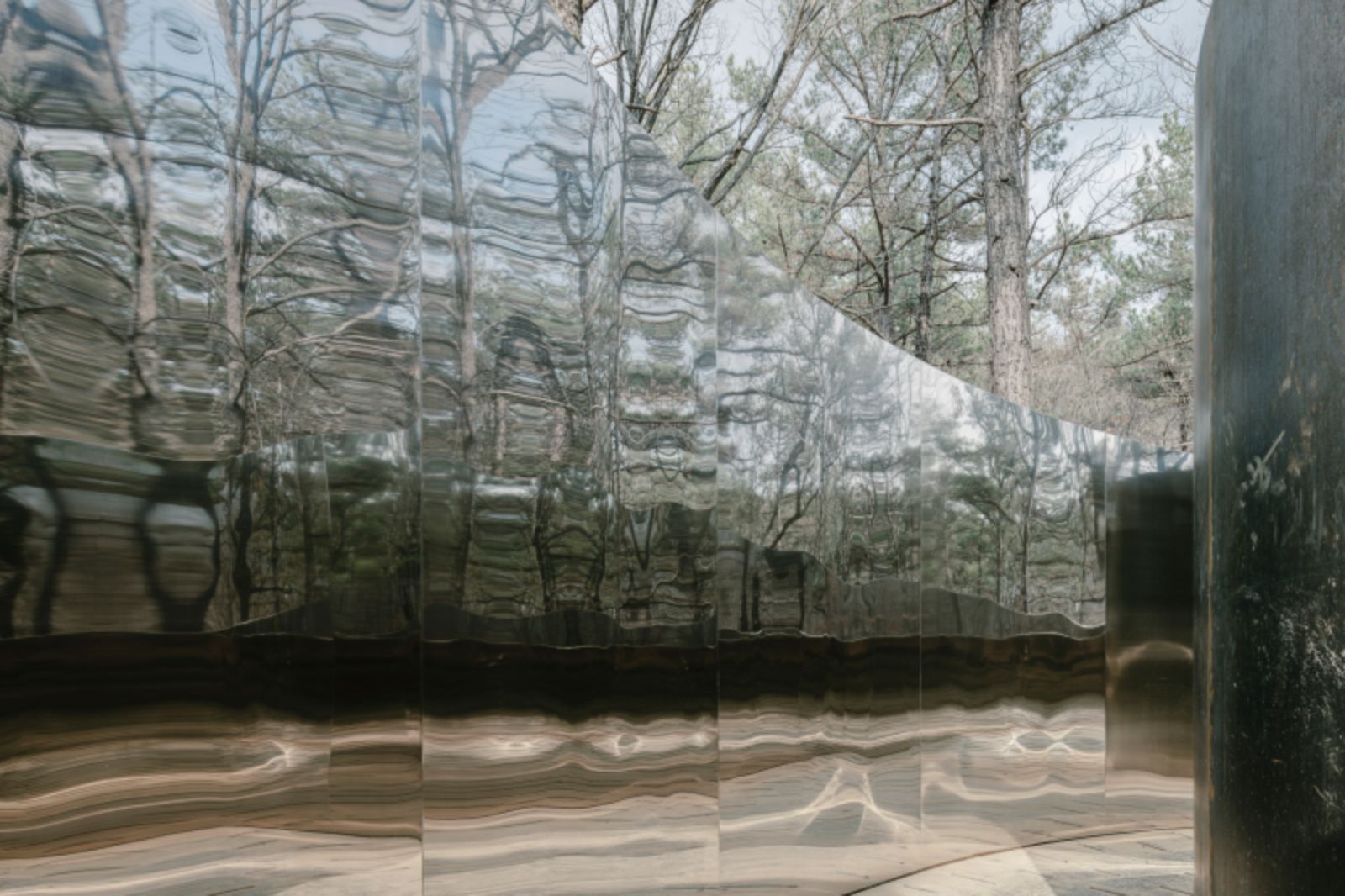
Corten steel has been used as main material for its strength and freedom of form, possibility to bend, and for its span distance. Corten gives the pavilion a natural look on the outside, a bit of roughness and over time a brown orange color that fits the forest well.
Inside there is this mirroring world that is enhanced by using a reflecting stainless steel. Public Art Project Anyang (APAP) takes place every two years. Earlier participants were Kengo Kuma, MASS Studies and MVRDV. Source by NEXT architects.
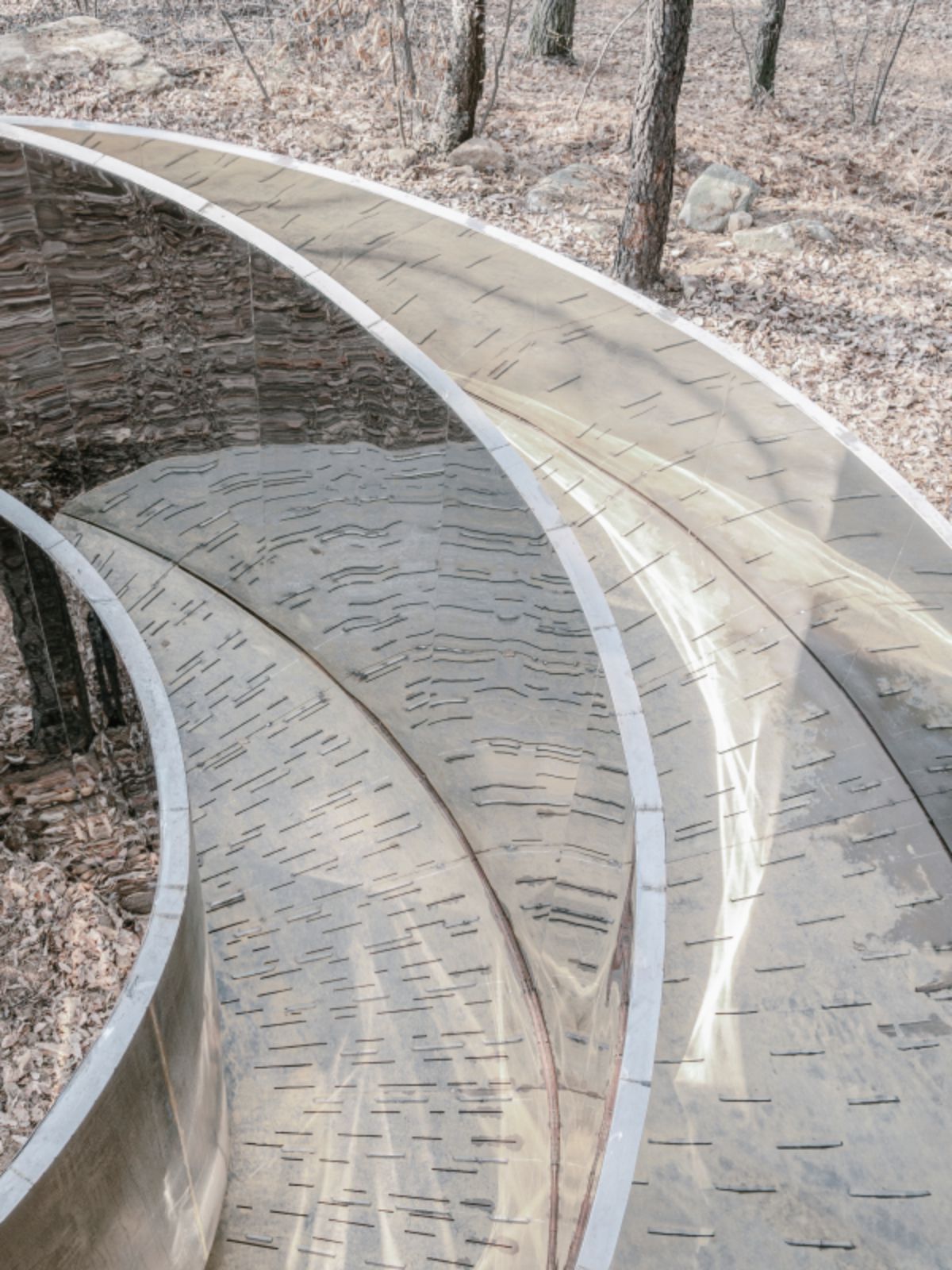
- Location: South Korea
- Architect: NEXT architects
- Design Team: Bart Reuser, Marijn Schenk, Michel Schreinemachers, Baekhyun Chi, Ingee van Heeswijk, Josep van Amelsvoort, Valeria Alexei, Monika Popkiwiecz, Diego Ramozzi, Wenda Andryani
- Client: Anyang Public Art Project
- Area: 190 m2
- Cost: 212.723,00 €
- Status: Completed in 2024
- Photographs: Yongbeak Lee, Courtesy of NEXT architects
